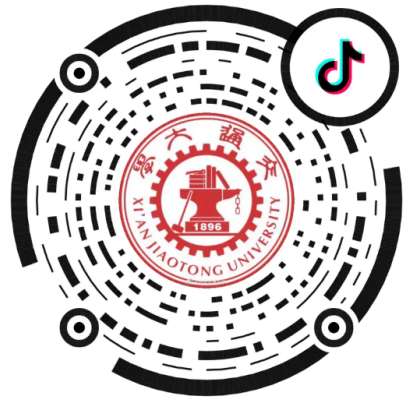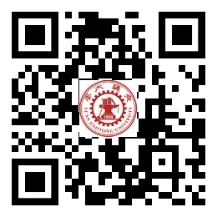【中国日报】整版刊发二附院罗花南武汉抗疫故事
3月5日,中国日报整版以“Coming to the rescue”为题刊发2019陕西省青年五四奖章获得者、援藏干部、援湖北国家医疗队队员、二附院耳鼻喉科副主任医师罗花南的专访文章,介绍了罗花南在武汉抗疫一线的工作情况,体现了交大医务工作者在危急时刻的责任与担当。

报道原文:
Physician Luo Huanan believes deeds mean more than words and has put this belief into action by volunteering to work on the front lines to fight the COVID-19 outbreak.
Luo is deputy chief physician of the otolaryngology head-and-neck surgery department of the Second Affiliated Hospital of Xi'an Jiaotong University in Shaanxi province.
He was supposed to enjoy his annual leave after returning on Dec 31 from a year and a half of medical service in the Tibet autonomous region. But he sacrificed his holiday to join the hospital's outpatient department to combat the novel coronavirus outbreak.
On Feb 8, his hospital established a 130-member medical team to assist the most-affected province, Hubei, to fight against the epidemic.
He serves as a group leader and directs his colleagues to take charge of daily diagnoses and treatments at the new Sino-French ward of Tongji Medical College's Tongji Hospital, which is affiliated with Huazhong University of Science and Technology in Wuhan.
Accepting risks
Even with tertiary protection, his team is susceptible to contagious exposure, since their key responsibilities involve collecting throat swabs and various procedures to treat high-risk patients.
“We all know that if the coronavirus outbreak in Wuhan isn't resolved properly, no one in the country can be at peace,” Luo says.
“We medical workers must hit it head on at the front line. All of our team's 130 members believe this. A sense of integrity and of duty compels me to save critically ill patients.”
On Feb 17, the team succeeded in implementing the first tracheal intubation and invasive ventilator treatment for an 85-year-old woman with a severe case of novel coronavirus pneumonia.
She was admitted to the hospitable with a fever for the first 10 days. A CT scan revealed a pulmonary infection.
On Feb 16, she became restless and delirious, and couldn't be treated with a high-flow nasal cannula or noninvasive ventilator to assist oxygen inhalation.
Her lung tissue was severely hypoxic with serious lactic acid accumulation, even when she was given pressurized pure oxygen.
The group held an emergency meeting to discuss the treatment plan and decided to apply the tracheal intubation ventilator. The patient's condition has since remained stable.
Luo's ENT (ear, nose and throat) expertise enables him to assist and guide team members to collect nucleic acid from mouth swabs. This improves the tests' accuracy.
In addition to his medical work, Luo wrote the lyrics for the music video, Loving You without Regret, released by the Second Affiliated Hospital of Xi'an Jiaotong University on Feb 14, which pays tribute to medical “retrograders”.
Wuhan connection
Wuhan, the city that's today the epicenter of the epidemic, is where Luo's dreams and ambitions came true years ago.
Luo attended Huazhong University of Science and Technology in Wuhan from 2000 to 2005. His most recent trip to the city was for a reunion of classmates in 2015.
“When I heard about the outbreak, I immediately thought that I had to do something for my alma mater, for the city where I had studied and lived, to help it get better as soon as possible,” he says.
Luo laments the ostensible distance between patients and medical staff clad in facemasks, goggles and protective suits. He hopes patients can recover soon, and be comforted by family and friends.
“Some patients who'd just arrived and talked to me with gratitude on my first shift were gone by my following shift. We felt very depressed, especially when a patient was taken directly to a funeral parlor after he died,”he says.
“But we have to wipe away our tears and stand firm because there are still many patients who need immediate treatment.”
Luo's family initially opposed his decision to sign up for the epidemic-assistance team. They worried his body hadn't yet fully recovered from returning from altitudes around 4,300 meters in Tibet.
Still, he and his wife, who's a nurse at the same hospital, signed up when they received a notice recruiting volunteers to work in Wuhan.
His application was accepted. Hers wasn't.
“My wife was at a loss,”he recalls.
“At this critical moment, my family realized the severity of the situation. They then supported me like they did when I went to Tibet.”
Luo was impressed by his colleagues' continuous care and psychological support for COVID-19 patients.
“Some of us give the patients daily-use items and medicines. Many who were discharged asked to take pictures with, and even bowed to, us,” he says.
Luo hopes society will respect medical workers and that there will be fewer attacks against them after the epidemic.
The outbreak has also exposed some problems in infectious-disease prevention and control, and in public health, he says.
“We could further rectify laws and regulations, such as the Law on Prevention and Control of Infectious Diseases and the Law on Wildlife, to avert such tragedies,” he says.
“After the epidemic, I'd like to spend more time with my family, especially my children. I've been supporting Tibet or Hubei for the past two years. I've been traveling abroad. I haven't been with them much.”
“In addition, I want to take them to Wuhan to appreciate the grandeur of the mountains, rivers and forests there, in the place where I once studied and fought.”
Time in Tibet
Luo joined the fourth batch of group-assisted medical teams from Shaanxi province in Tibet.
He worked in the People's Hospital in Tibet's Ali region from July 2018 to December 2019.
He was head of the ENT department and assistant to the dean. He overcame altitude sickness and a shortage of surgical instruments.
Using the department's only endoscopy equipment, he carried out over 40 types of surgeries not previously performed at the hospital, including the first ear endoscopy, inferior tympanic membrane repair and endoscopic nasal septum-deflection correction.
His work won him such accolades as the Ali Youth May Fourth Medal.
When his yearlong service period was completed in July 2019, he singed on to stay until December.
As of now, he doesn't know how long he'll need to remain in Wuhan.
But he does know why he's there.
原文刊载于2020年3月5日中国日报16版
报道链接:https://global.chinadaily.com.cn/a/202003/05/WS5e603725a31012821727c627_1.html










